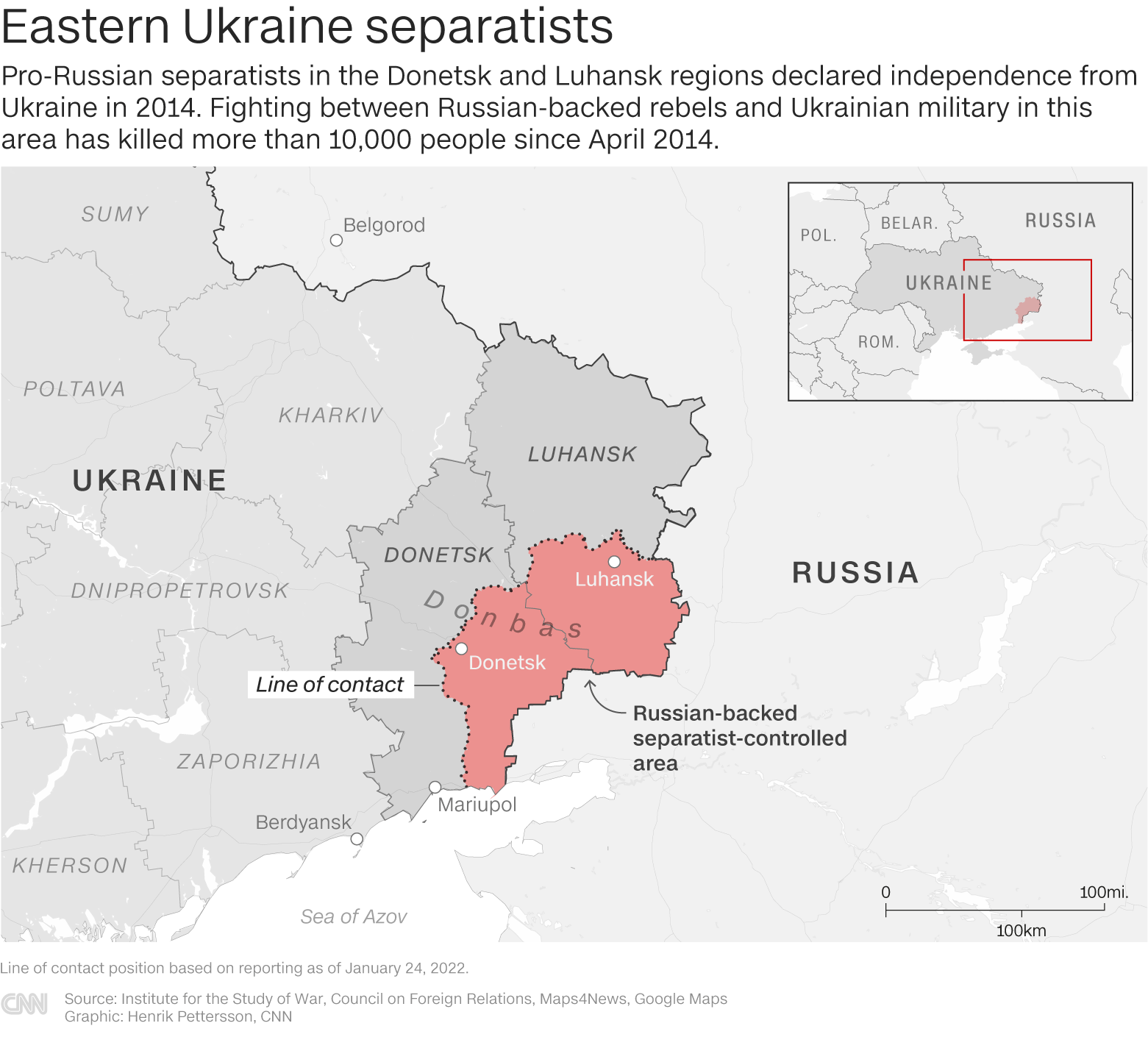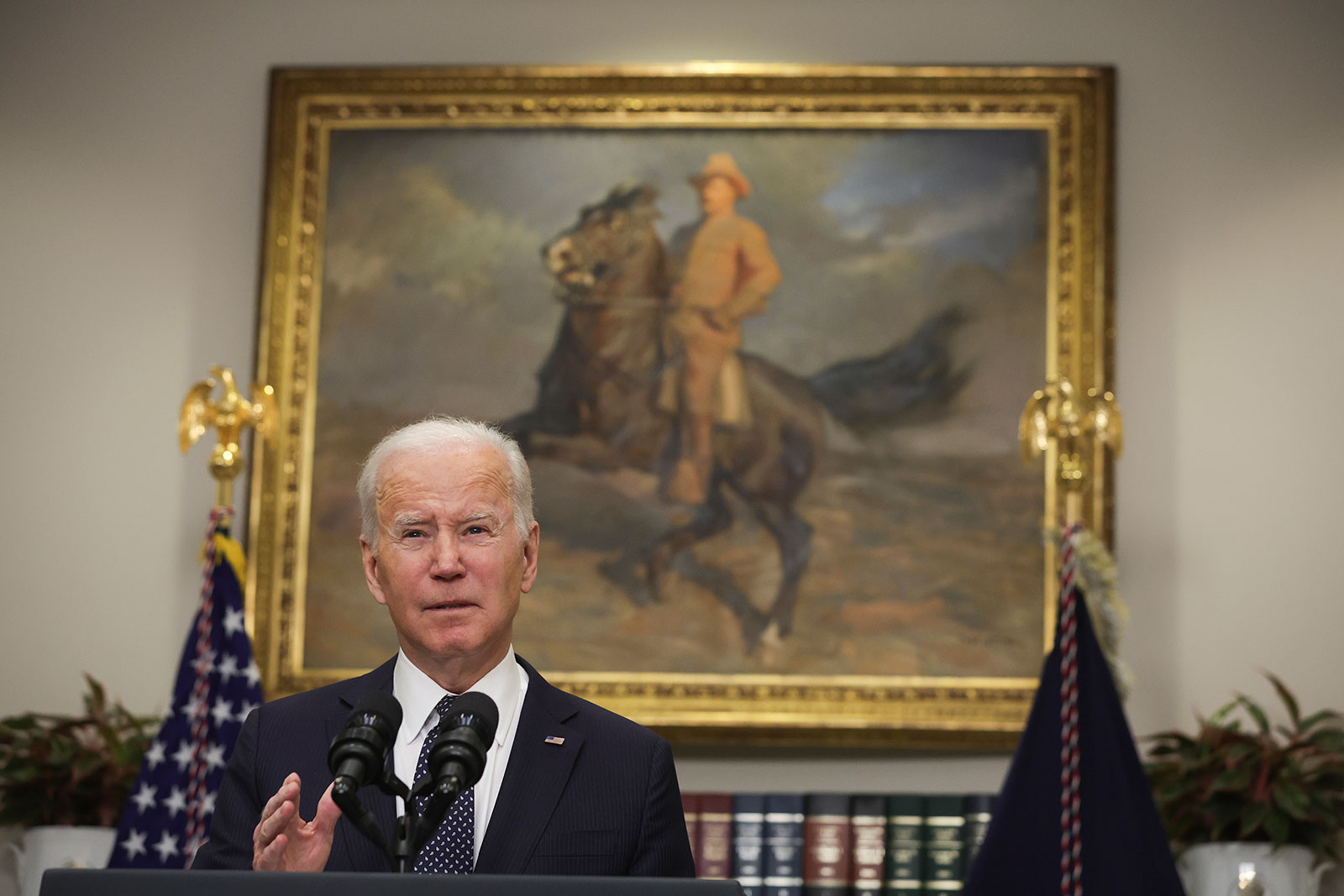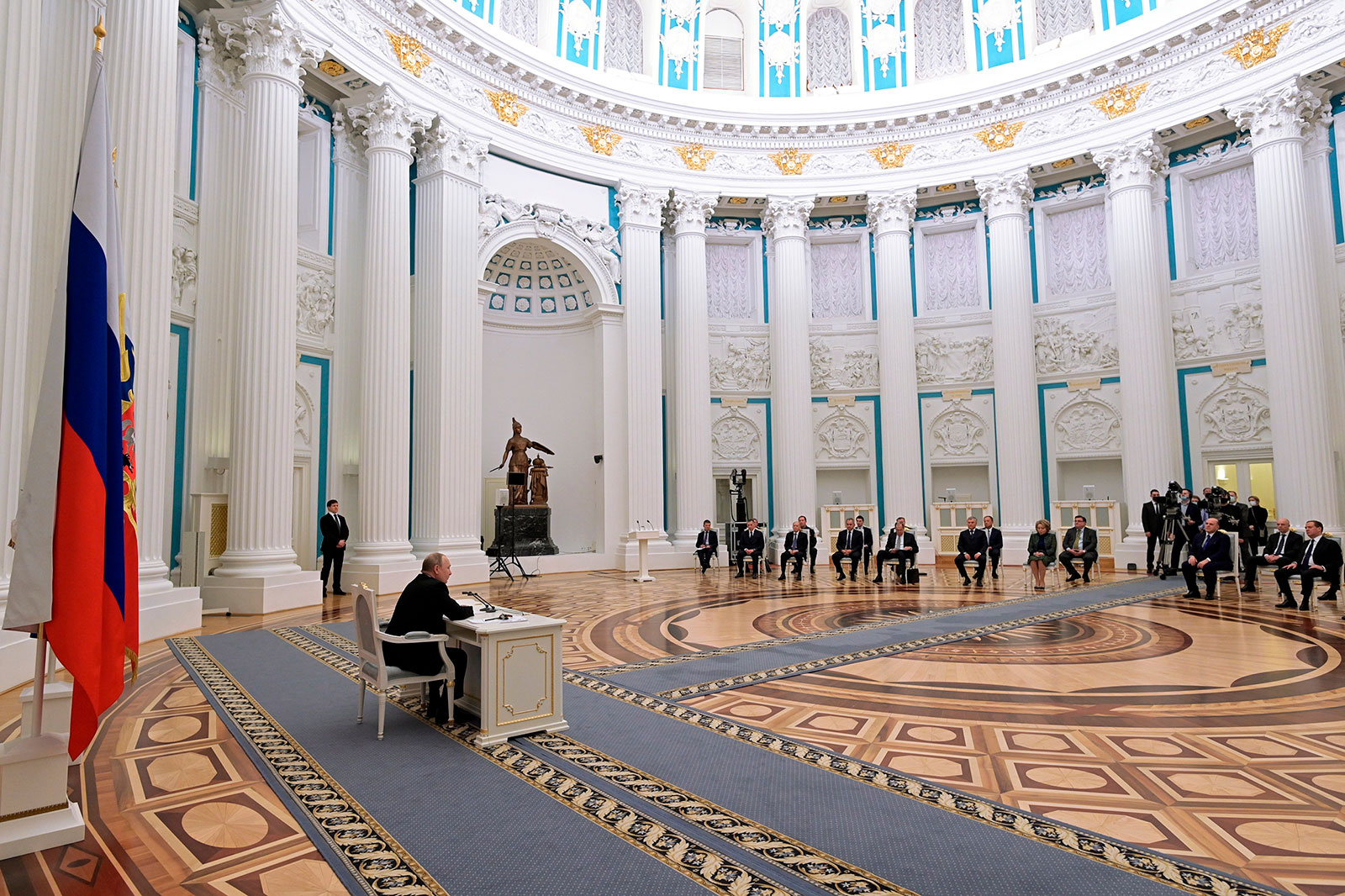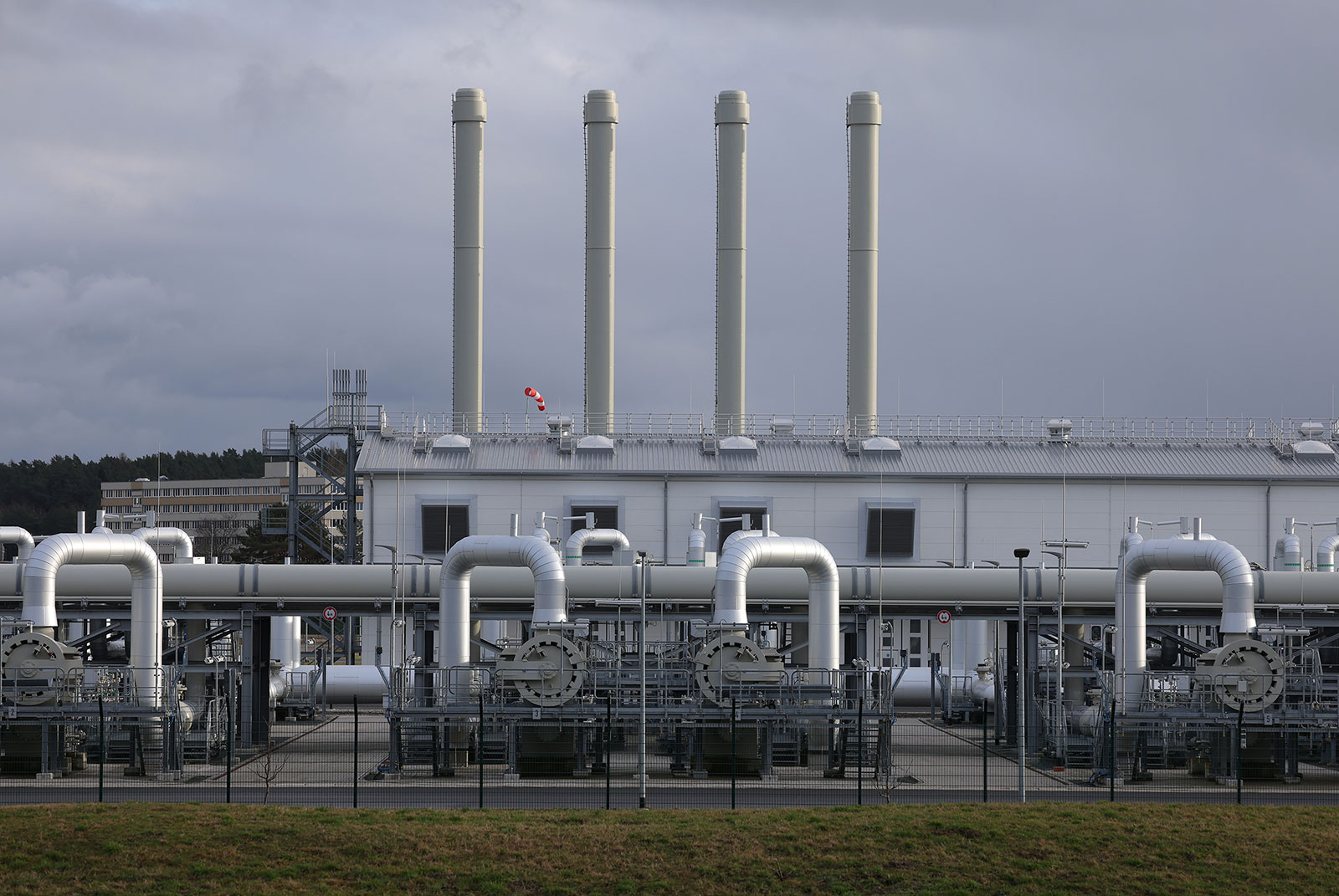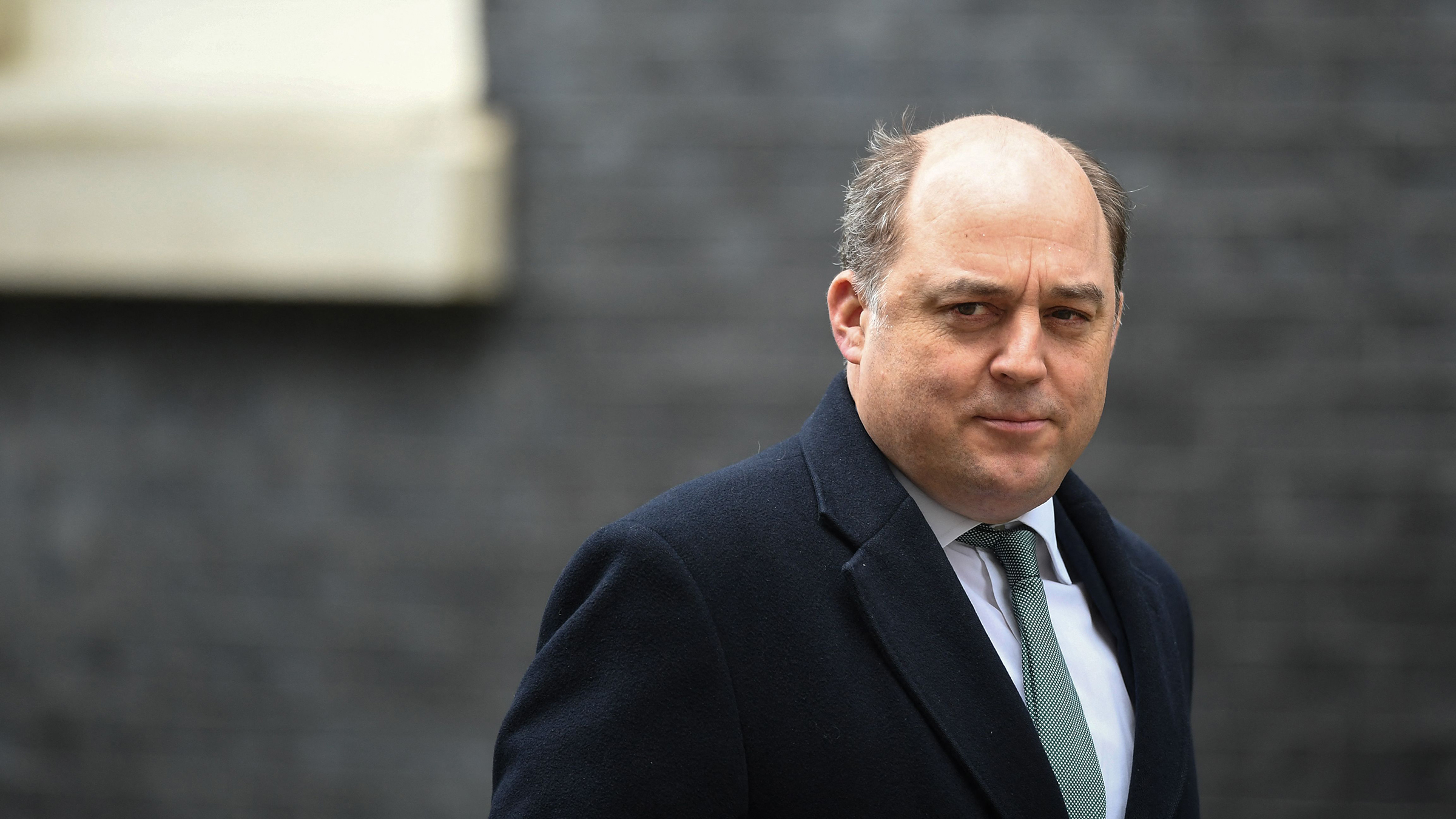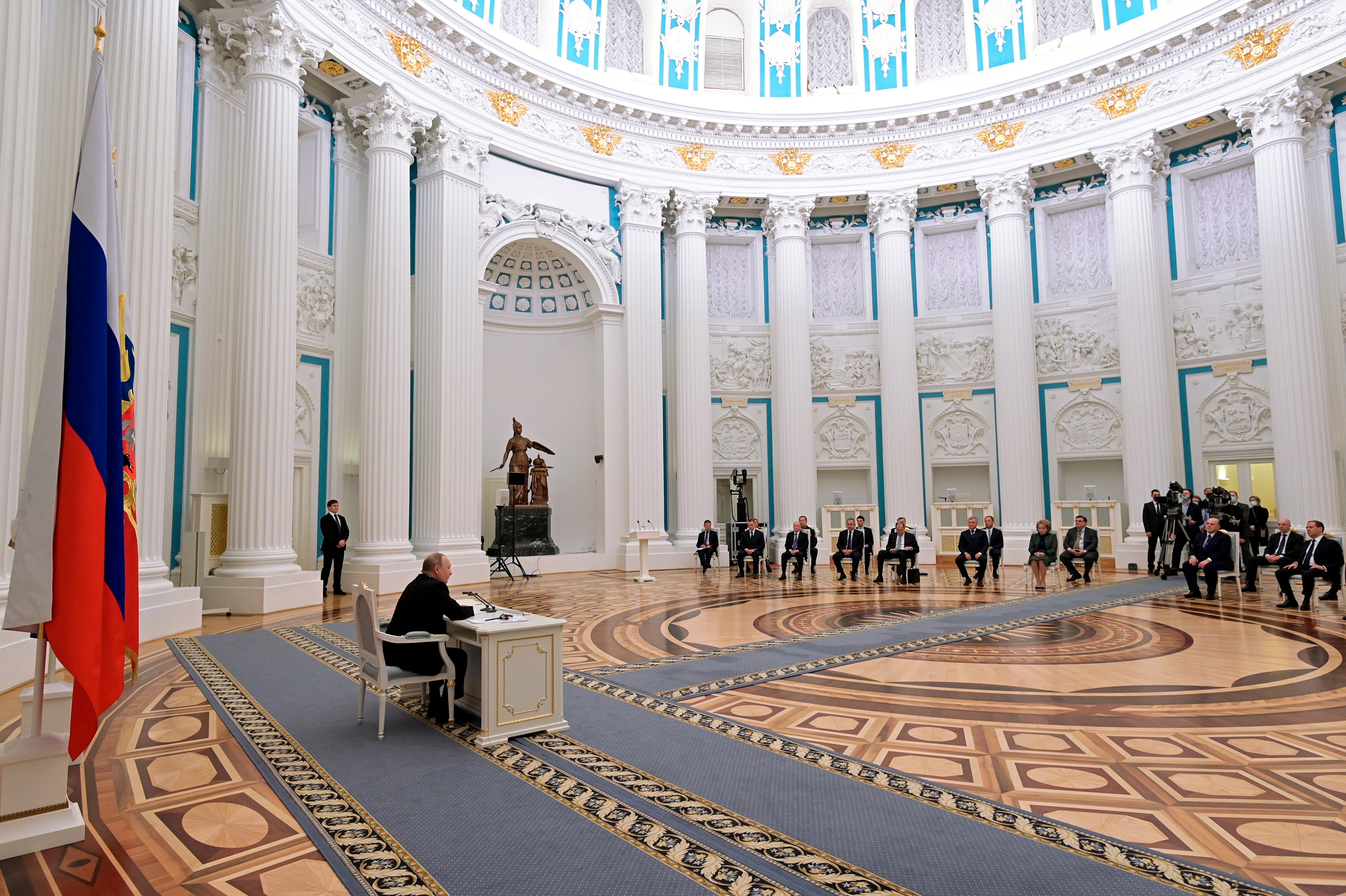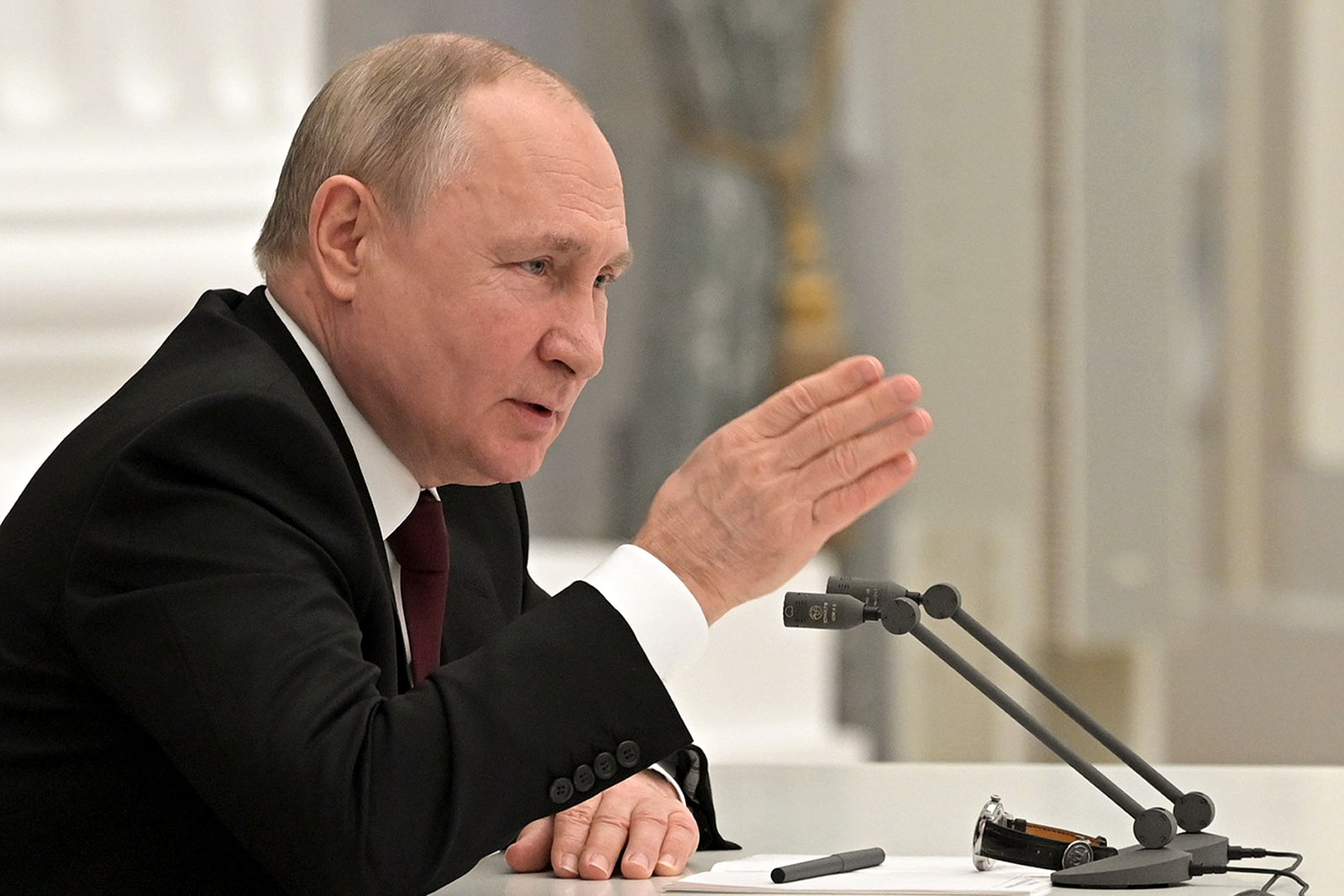
Russian President Vladimir Putin informed French President Emmanuel Macron and German Chancellor Olaf Scholz by phone that he intends to sign a decree "soon" to recognize the separatist self-declared republics of Donbas, the Kremlin said Monday.
"Vladimir Putin informed them about the results of the expanded meeting of the Security Council of the Russian Federation, which considered the current situation around Donbas in the context of the State Duma's decision on the recognition of the Donetsk and Luhansk People's Republics," the Kremlin statement said. "Today, the leadership of the DPR and LPR received appeals to recognize their sovereignty in connection with the military aggression of the Ukrainian authorities, the massive shelling of the territory of Donbas, as a result of which the civilian population is suffering."
Putin said that he intended to sign a corresponding decree soon, the Kremlin added.
According to the Kremlin readout, the French and German leaders "expressed their disappointment with this development. At the same time, they indicated their readiness to continue contacts."
More background: The separatist-controlled areas in Donbas are known as the Luhansk People's Republic (LPR) and the Donetsk People's Republic (DPR).
The Ukrainian government in Kyiv asserts the two regions are in effect Russian-occupied. The self-declared republics are not recognized by any government, including Russia. The Ukrainian government refuses to talk directly with either separatist republic.
Read more here about the separatist regions and why they are at the heart of the Ukraine-Russia crisis.
Here's a map showing where the separatist regions are located:
